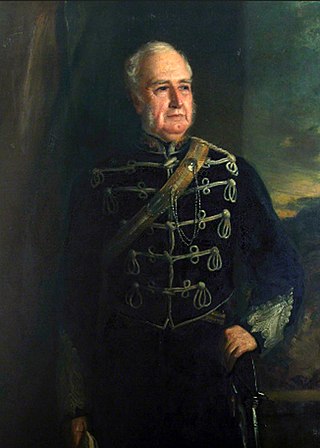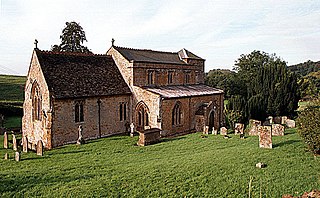Related Research Articles

Charles Shaw-Lefevre, 1st Viscount Eversley, GCB, PC, was a British Whig politician. He served as Speaker of the House of Commons from 1839 to 1857. He is the second-longest serving Speaker of the House of Commons, behind Arthur Onslow.

John Moore (1646–1714) was Bishop of Norwich (1691–1707) and Bishop of Ely (1707–1714) and was a famous bibliophile whose vast collection of books forms the surviving "Royal Library" within Cambridge University Library.

Charles Watkin Williams-Wynn PC was a British politician of the early- to mid-19th century. He held office in both Tory and Whig administrations and was Father of the House of Commons between 1847 and 1850.

The Church of St Margaret, Westminster Abbey is in the grounds of Westminster Abbey on Parliament Square, London, England. It is dedicated to Margaret of Antioch, and forms part of a single World Heritage Site with the Palace of Westminster and Westminster Abbey.

Sir Harbottle Grimston, 2nd Baronet was an English lawyer and politician who sat in the House of Commons at various times between 1640 and 1685 and was Speaker in 1660. During the English Civil War he remained a Parliamentarian but was sympathetic to the Royalists.

George John Shaw Lefevre, 1st Baron Eversley was a British Liberal Party politician. In a ministerial career that spanned thirty years, he was twice First Commissioner of Works and also served as Postmaster General and President of the Local Government Board.

Sir John Cust, 3rd Baronet PC, of Belton House near Grantham in Lincolnshire, was a British politician who served as Speaker of the House of Commons from 1761 to 1770.

Richard Terrick was a Church of England clergyman who served as Bishop of Peterborough 1757–1764 and Bishop of London 1764–1777.

Sir Edwyn Hoskyns, 12th Baronet was a British Anglican bishop who served in the Church of England in the early 20th century.

Drayton is a village and civil parish in the valley of the Sor Brook in Oxfordshire, about 2 miles (3 km) northwest of Banbury. The 2011 Census recorded the parish's population as 242.

Sir Thomas Gooch, 2nd Baronet (1674–1754) was an English bishop.
Charles Shaw Lefevre, born Charles Shaw, was a British Whig politician.
Sir Alexander Cray Grant, 8th Baronet was a British politician and plantation owner in the West Indies.
Sir William Talbot, 1st Baronet, was an Irish lawyer and politician. He sat as MP for County Kildare in the Parliament of 1613–1615 and was in 1628 one of the negotiators of the Graces. However, he is probably mainly remembered as the father of Richard Talbot, 1st Earl of Tyrconnell.

There have been four baronetcies created for persons with the surname Cope.

Sir Anthony Cope, 1st Baronet of Hanwell in Oxfordshire, was an English Puritan Member of Parliament.
Sir Glynne Earle Welby-Gregory, 3rd Baronet, born Glynne Earle Welby, was a British Tory Member of Parliament.

Sir William Earle Welby, 1st Baronet, was a British land-owner, baronet and Member of Parliament for Grantham from 1802 to 1806. He also served as High Sheriff of Lincolnshire from 1796 to 1797.

The Chaplain to the Speaker of the House of Commons, also known as the Speaker's Chaplain, is a Church of England priest who officiates at services held at the Palace of Westminster and its associated chapel, St Mary Undercroft. The Chaplain also acts as chaplain to the Speaker and Members of Parliament. The first Speaker's Chaplain was appointed in 1660. The current officeholder is Patricia Hillas.

Richard Cust was an English clergyman who served as Chaplain to the Speaker of the House of Commons, Dean of Rochester and Dean of Lincoln.
References
- 1 2 3 "Cope, Richard (CP739R)". A Cambridge Alumni Database. University of Cambridge.
- ↑ Gray, Donald (1991). Chaplain to Mr Speaker: The Religious Life of the House of Commons. H.M. Stationery Office. ISBN 978-0-10-850634-5 . Retrieved 18 May 2020.